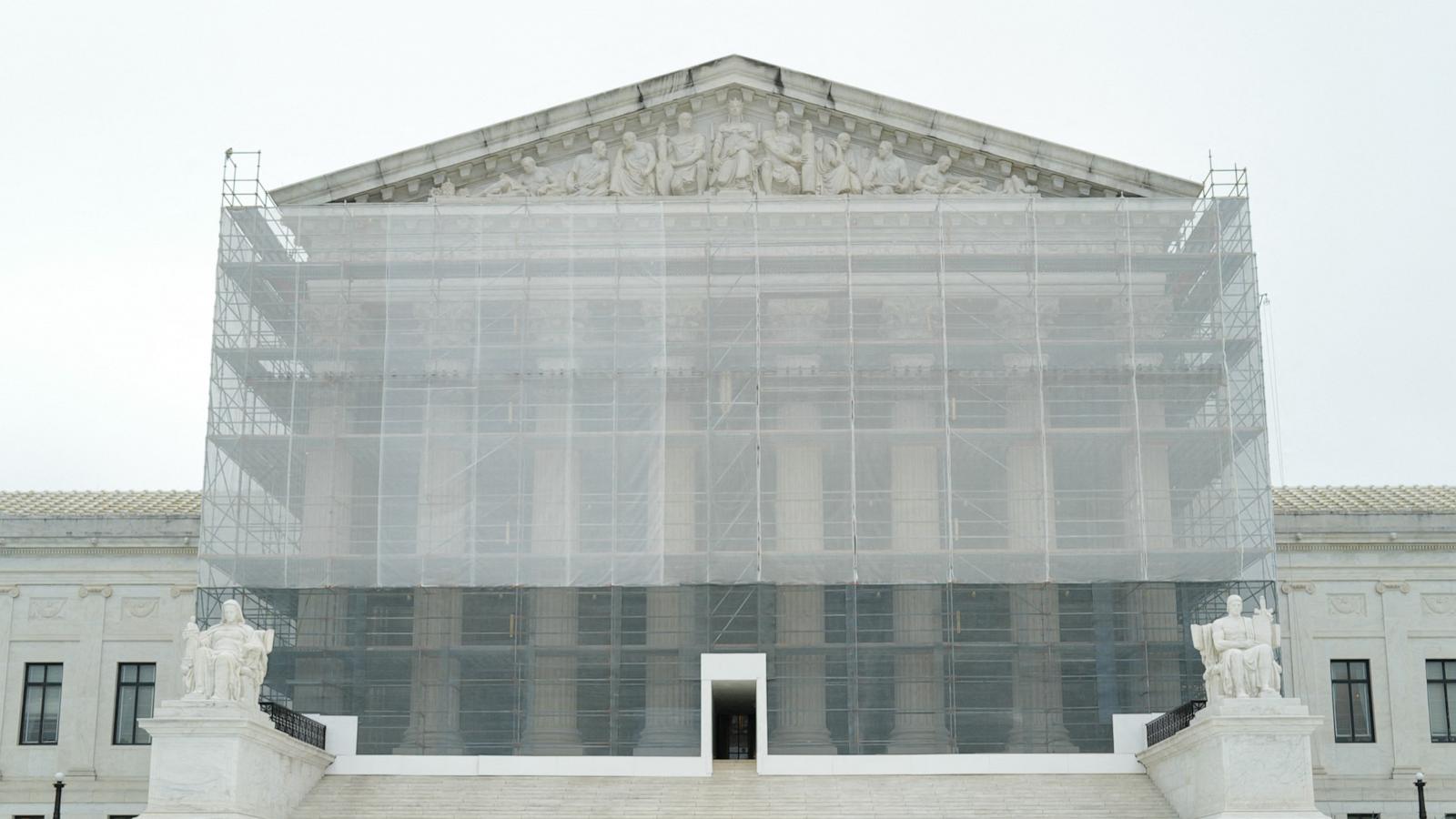The Supreme Court on Friday granted a partial stay of nationwide injunctions issued against President Donald Trump’s executive order to effectively end birthright citizenship, handing Trump a win amid his showdown with federal judges who’ve blocked parts of his second-term agenda.
The 6-3 opinion came from Justice Amy Coney Barrett. The court’s three liberal justices dissented.
The court, however, said it was not deciding whether the executive order from Trump was constitutional, rather focusing on whether a single judge has the authority to issue universal injunctions.
“Government’s applications for partial stays of the preliminary injunctions are granted, but only to the extent that the injunctions are broader than necessary to provide complete relief to each plaintiff with standing to sue,” the opinion read.

Trump took a victory lap in a rare appearance in the White House briefing room shortly after the decision came down.
“Amazing decision, one we’re very happy about,” Trump told reporters.
“This morning the Supreme Court has delivered a monumental victory for the Constitution, the separation of powers and the rule of law in striking down the excessive use of nationwide injunctions to interfere with the normal functioning of the executive branch,” he said.

However, legal challenges will continue to Trump’s Day 1 order to deny citizenship to children born on U.S. soil to unlawful immigrants or those on a temporary immigrant status, as the court did not rule on the merits of the cases.
The individual plaintiffs in these cases remain protected under the injunctions issued.
“Prohibiting enforcement of the Executive Order against the child of an individual pregnant plaintiff will give that plaintiff complete relief: Her child will not be denied citizenship,” Barrett said. “Extending the injunction to cover all other similarly situated individuals would not render her relief any more complete.”
Trump can move forward immediately, though, with developing plans to implement the birthright citizenship order — which will not take effect for 30 days.
Friday’s decision is a boost for Trump in his crusade against nationwide injunctions that have blocked some of the executive actions he’s taken so far in his second term.
Supporters of nationwide injunctions say they serve as an essential check to potentially unlawful conduct and prevent widespread harm. Critics say they give too much authority to individual judges and incentivize plaintiffs to try to evade random assignment and file in jurisdictions with judges who may be sympathetic to their point of view.

Justice Sonia Sotomayor read her blistering dissent aloud from the bench, criticizing the court’s majority.
“No right is safe in the new legal regime the Court creates,” Sotomayor wrote. “Today, the threat is to birthright citizenship. Tomorrow, a different administration may try to seize firearms from lawabiding citizens or prevent people of certain faiths from gathering to worship.”
“The majority holds that, absent cumbersome class-action litigation, courts cannot completely enjoin even such plainly unlawful policies unless doing so is necessary to afford the formal parties complete relief,” she added. “That holding renders constitutional guarantees meaningful in name only for any individuals who are not parties to a lawsuit. Because I will not be complicit in so grave an attack on our system of law, I dissent.”
Sotomayor accused the Trump administration of “gamesmanship” and said with this ruling the Supreme Court’s majority “plays along.”
“Every conceivable source of law confirms, birthright citizenship is the law of the land,” she wrote in dissent.
Justice Brett Kavanaugh wrote separately to underscore, in his view, the narrowness of the decision, insisting that class-action claims are still available and that the Supreme Court itself can and likely will review lower courts along the way with respect to scope of relief from an alleged illegal government policy.
Kavanaugh also noted that the Administrative Procedures Act remains an avenue for plaintiffs to bring challenges to presidential policies on a nationwide basis.
Reaction to the ruling was largely split along party lines, with Republicans calling it a win for the administration while Democrats expressed serious concern that Trump’s actions could go unchecked.
“The Supreme Court’s decision to limit courts of their long-held authority to block illegal executive actions is an unprecedented and terrifying step toward authoritarianism, a grave danger to our democracy, and a predictable move from this extremist MAGA court,” Senate Minority Leader Chuck Schumer wrote on X. “By weakening the power of district courts to check the presidency, the Court is not defending the Constitution — it’s defacing it.”
ABC News: Top Stories
Read the full article .


